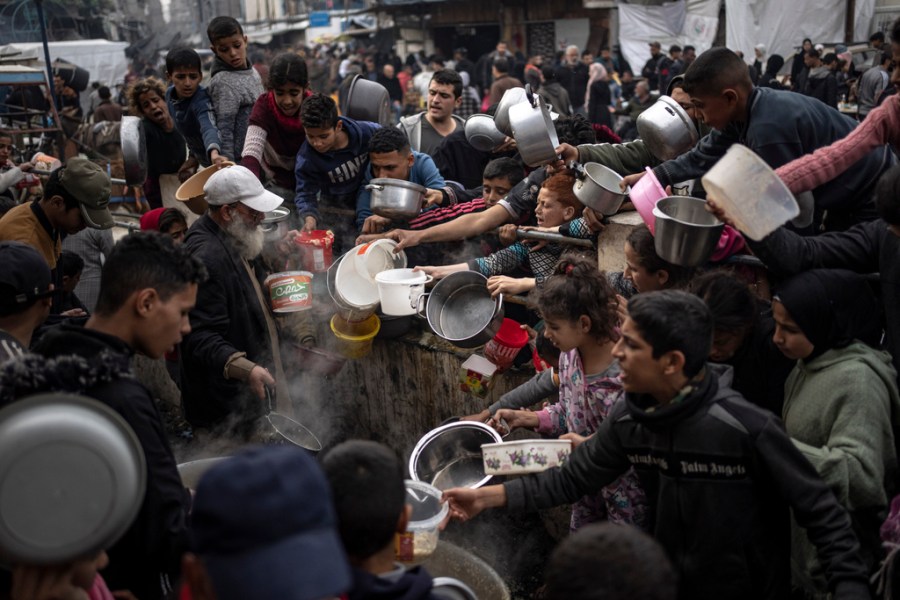(NewsNation) — Field researchers for two humanitarian aid organizations who surveyed Gaza’s living conditions say some in the besieged Strip are surviving on just 3% of the minimum daily water needs under international standards, a newly released report shows.
The International Rescue Committee (IRC) and Medical Aid for Palestinians (MAP) conducted field operations and found that some living in scattered settlements in central Gaza are barely surviving without water, according to their report.
“In Gaza, a shelter we visited housing 10,000 people receives just 4,000 liters of water per day. This translates to about half a liter per person per day for drinking, washing, cooking, and cleaning, compared to the minimum standard of 15 liters per person per day,” Kiryn Lanning, IRC country director for the Gaza crisis, said in a statement.
According to the World Health Organization, 20 liters per capita per day is Loe necessary to take care of basic hygiene and food, but in an emergency situation, a minimum of 15 liters is required.
“This severe shortage of water, especially in the north, forces people to compete to access water when delivered through water trucking, and rely on unsafe water sources like seawater and agricultural wells, increasing health risks from contaminants like pesticides and animal waste,” Lanning said.
The report found that at least one major hospital is struggling to keep sufficient water supplies to meet its needs.
With Israel’s complete siege and closure of the Rafah crossing, researchers warn that an already “catastrophic” situation with water scarcity will exacerbate further.

The Rafah crossing into Egypt has been closed since Israeli troops seized it more than a week ago. Israel gained full control over the entry and exit of people and goods.
It is a region that had been sheltering 1.3 million Palestinians, many of whom have fled since Israel took control of the crossing.
The United Nations on Tuesday said it suspended food distribution in Rafah due to “lack of supplies and insecurity.” It also said no aid trucks entered via a pier set up by the U.S. for sea deliveries for the past two days.
The U.N. has not specified how many people remain in Rafah after the Israeli military launched an intensified assault there on May 6, but there appears to be several hundred thousand, according to the organization.
Abeer Etefa, a spokesperson for the U.N.’s World Food Program, warned that “humanitarian operations in Gaza are near collapse.” If food and other supplies don’t resume entering Gaza “in massive quantities, famine-like conditions will spread,” she said.
Diseases such as Hepatitis are spreading among people who cannot access sources of clean water, the report stated.
“With some people surviving on just 3% of their minimum water needs, our doctors already report that this is leading to the spread of more infectious diseases, including diarrhea and skin diseases,” Melanie Ward, MAP’s chief executive officer, said in a statement. “But simply not having enough water can also lead to dehydration, and we have already seen children dying of dehydration and starvation in Gaza.”
The crisis extends beyond water scarcity to a severe lack of adequate sanitation facilities, the report states.
Much of Gaza lacks toilets, showers and hygiene supplies, the reports stated, adding that on average, 600 people are sharing a single toilet — 30 times more people than the minimum standard of 20 people per toilet.
“Put simply, we are witnessing a catastrophic decline in living standards and health conditions every day,” Lanning said.
The Associated Press contributed to this story.
